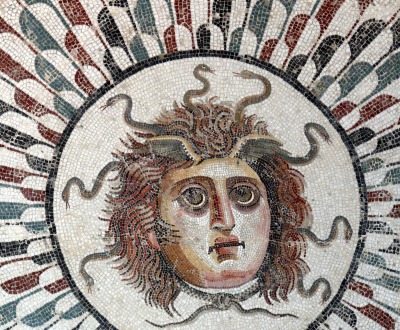Miscellany
Born on Lesbos around 700 BC, Terpander, a master of the kithara, was summoned to Sparta during a period of civil strife—an oracle had suggested bringing the “Lesbian singer” to help—and organized the city-state’s earliest civic music culture. Immensely popular there, he later returned for what was to be his last performance. While he was playing, a fig thrown by an adoring fan went directly into his mouth. Terpander choked on the fruit and died.
Miscellany
Researchers working with the Tsimané of the Amazon found that tribe members could tell the difference between consonance and dissonance but took them to be equally pleasant, giving credence to the idea that Western preference for consonance is not biological. “The Greeks were really into ratios,” speculated the lead researcher. “It’s possible they started making music that way and we’ve been stuck with it ever since.”
Miscellany
Plato’s uncle Charmides boasted to wealthy aristocrat Callias that poverty granted freedom. “I lose nothing because I have nothing,” he said. Callias was unconvinced. “So, do you also pray never to be rich,” he asked, “and if you have a good dream, do you sacrifice to the averters of disaster?” “Not at all,” Charmides replied, “I accept the outcome like a daredevil.”
Miscellany
Greek geographer Strabo wrote around 20 bc that, to deal with “a crowd of women” or “any promiscuous mob,” one cannot use reason but rather must exert control using myths and marvels. “For thunderbolt, aegis, trident, torches, snakes, thyrsus lances—arms of the gods—are myths,” he wrote. “The founders of states gave their sanction to these things as bugbears wherewith to scare the simpleminded.”
Pages


